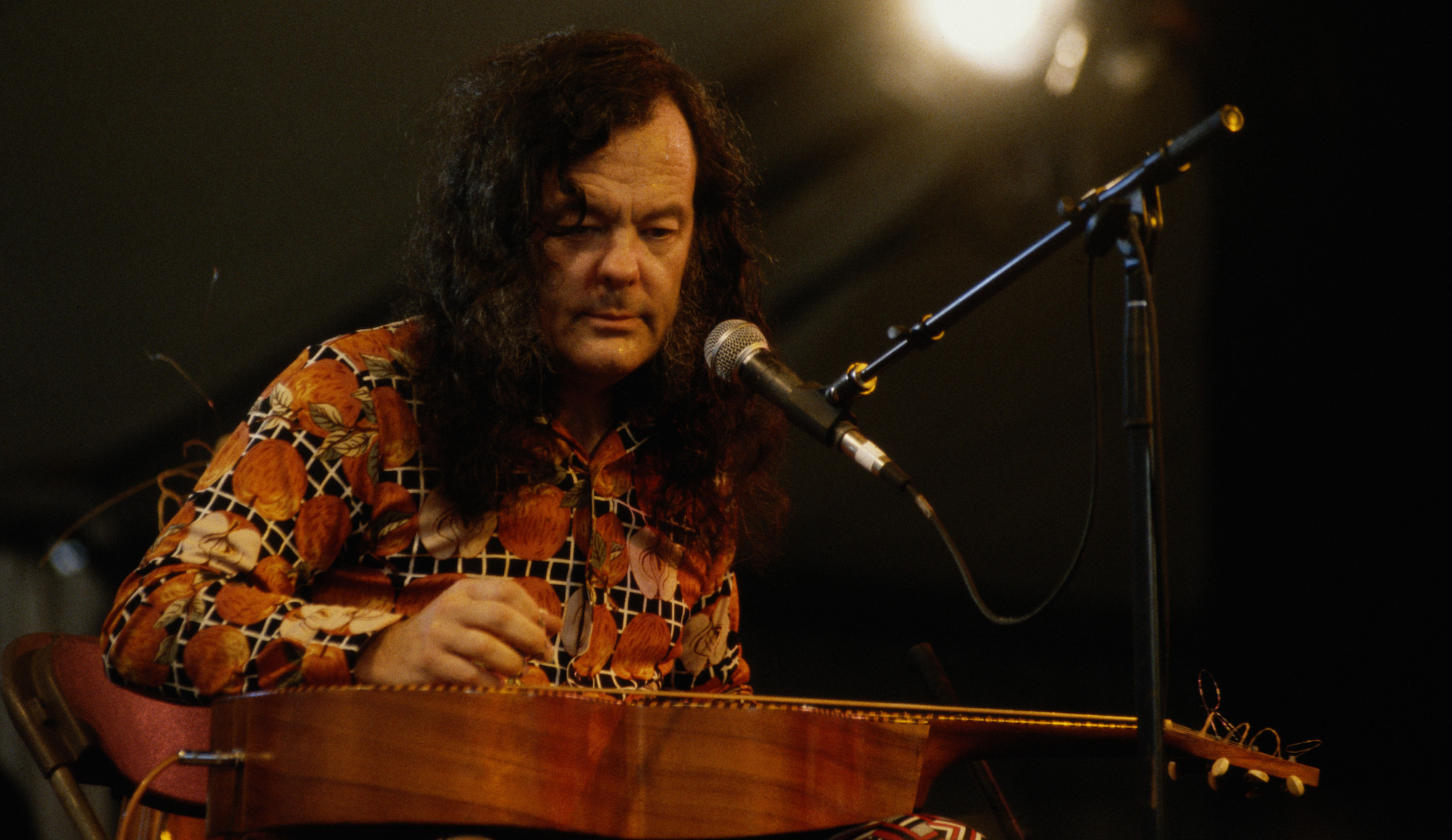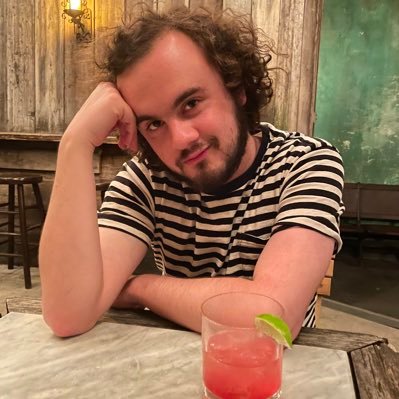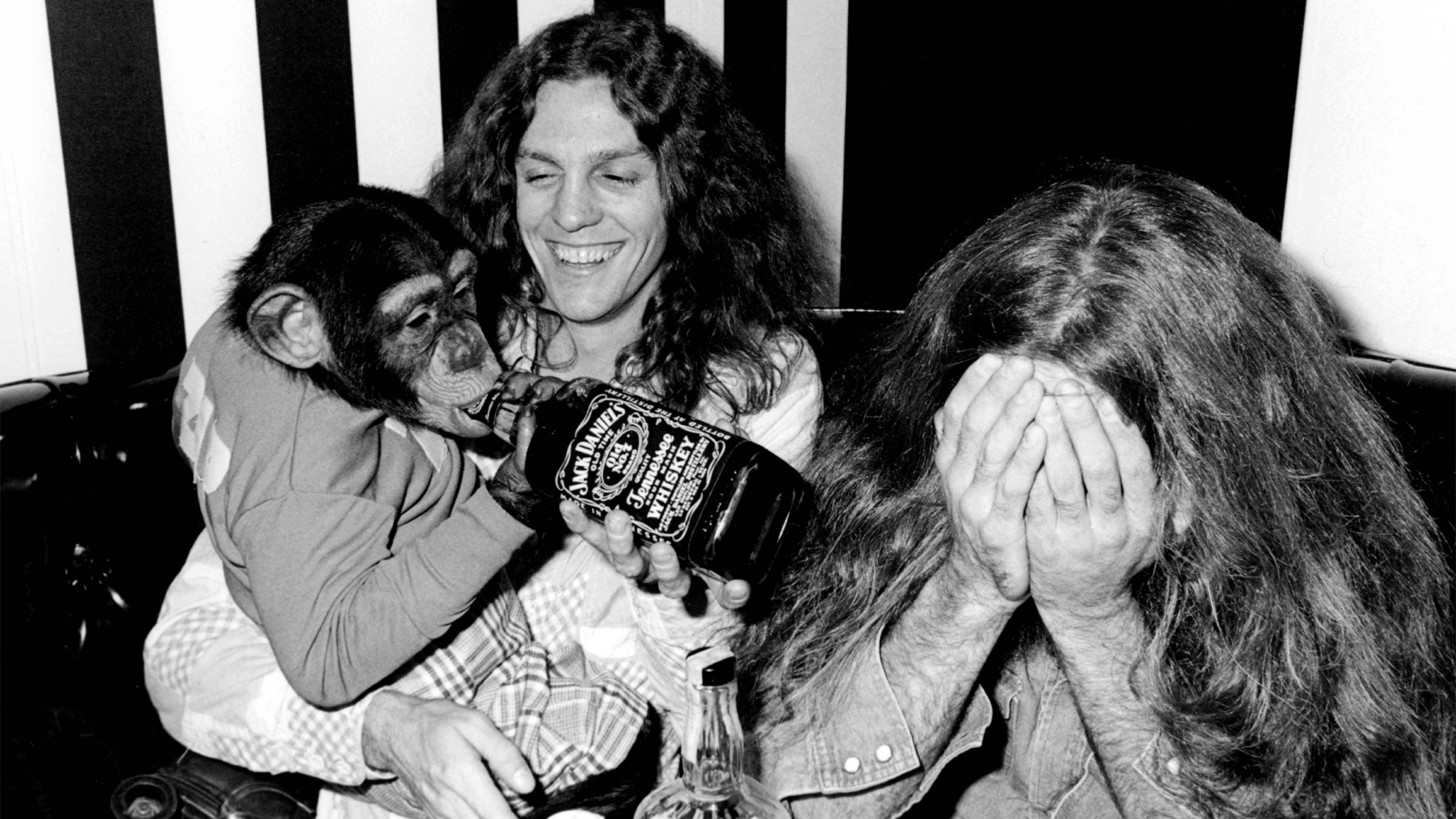David Lindley, Legendary Session Guitarist and Multi-Instrumentalist, is Dead at 78
Most famous for his work with Jackson Browne, the California native performed and recorded with a mind-boggling list of rock greats over the course of his 50+-year career.

All the latest guitar news, interviews, lessons, reviews, deals and more, direct to your inbox!
You are now subscribed
Your newsletter sign-up was successful
David Lindley, a multi-instrumentalist and session guitar great who recorded and performed with a who's who of rock royalty, has died at the age of 78.
The Los Angeles Times confirmed the guitarist's death on Friday (March 3). No cause of death was given, though a fundraising page to assist Lindley with medical expenses from an undisclosed illness had been set up earlier this year.
Most famous for his work with Jackson Browne – particularly on lap steel – Lindley also featured prominently on albums by Linda Ronstadt, Warren Zevon, Ry Cooder, Rod Stewart, and Crosby, Stills & Nash.
His evocative steel solo on Browne's “Running on Empty" can be heard below.
Born in San Marino, California in 1944, Lindley first took up the banjo, fiddle, and baritone ukulele, foreshadowing the musical versatility for which he would later become known.
Though he, naturally, played in folk groups in the early '60s, Lindley first came to the notice of the music-listening public with his psychedelic folk group, Kaleidoscope, in the late '60s. Lindley's first session gigs – including, reportedly, a role on Leonard Cohen's 1967 debut, Songs of Leonard Cohen – coincided with Kaleidoscope's early career.
After Kaleidoscope's dissolution in 1970, Lindley found his footing with Jackson Browne, performing on each of the singer/songwriter's albums from 1973's For Everyman through 1980's Hold Out, helping – through those contributions and many others to similar albums of the period – shape the sound of West Coast soft-rock in the process.
All the latest guitar news, interviews, lessons, reviews, deals and more, direct to your inbox!
Lindley – normally a background presence – even took a surprise vocal turn on Browne's hit cover of Maurice Williams’ ”Stay.”
After parting ways with Browne in 1980, Lindley formed his own band, the eclectic El Rayo-X. Upon that band's dissolution, he returned to session work, performing on records by Bob Dylan, Iggy Pop, and John Prine, among others.
Lindley was a prolific musician in his own right, collaborating on a number of albums with oud/hand drum master Hani Naser, experimental guitarist Henry Kaiser, and drummer Wally Ingram.
Though not a household name himself, Lindley left a significant mark on many of the prominent guitarists who heard him play. Some of those guitarists paid tribute on social media upon hearing of Lindley's death.
The loss of David Lindley is a huge one- Without his influence my music would sound completely different. I was genuinely obsessed with his playing from the first time I heard it. The man was a giant.March 3, 2023
It’s so sad to hear of David Lindley’s passing. He was a giant among musicians. Always his unique sound and style gave him away in one note. My thoughts are with his family.March 4, 2023
No words can describe the loss of David Lindley. He changed the game for all of us. Rest in peace sir. pic.twitter.com/eEqMaQM99vMarch 4, 2023
Lindley's full session and solo discography can be viewed on the guitarist's website.

Jackson is an Associate Editor at GuitarWorld.com and GuitarPlayer.com. He’s been writing and editing stories about new gear, technique and guitar-driven music both old and new since 2014, and has also written extensively on the same topics for Guitar Player. Elsewhere, his album reviews and essays have appeared in Louder and Unrecorded. Though open to music of all kinds, his greatest love has always been indie, and everything that falls under its massive umbrella. To that end, you can find him on Twitter crowing about whatever great new guitar band you need to drop everything to hear right now.
